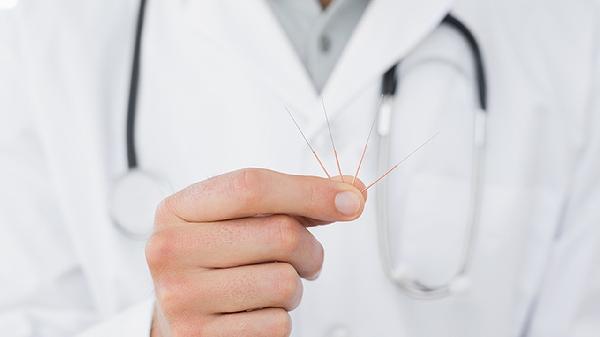Yes, acupuncture can effectively ease nerve pain, according to experts and numerous studies. This ancient Chinese practice involves inserting thin needles into specific points on the body to stimulate nerves, muscles, and connective tissue, which can help reduce pain and improve overall well-being. For individuals suffering from nerve pain, acupuncture offers a non-invasive, drug-free alternative that has shown promising results in managing symptoms and improving quality of life.

Understanding Nerve Pain and Its Causes
Nerve pain, or neuropathic pain, arises from damage or dysfunction in the nervous system. Conditions such as diabetes, shingles, sciatica, and carpal tunnel syndrome are common culprits. Unlike typical pain, nerve pain often feels like burning, tingling, or sharp sensations and can be chronic and debilitating. Traditional treatments like medications and physical therapy may not always provide relief, leading many to explore alternative therapies like acupuncture.
How Acupuncture Works for Nerve Pain
Acupuncture is believed to work by stimulating the body’s natural healing mechanisms. When needles are inserted into specific acupuncture points, they trigger the release of endorphins, the body’s natural painkillers, and increase blood flow to the affected area. This process can help reduce inflammation, improve nerve function, and alleviate pain. Additionally, acupuncture may modulate the nervous system, helping to calm overactive nerves that contribute to pain signals.
Scientific Evidence Supporting Acupuncture
Numerous studies have investigated the effectiveness of acupuncture for nerve pain. A meta-analysis published in the Journal of Pain found that acupuncture significantly reduced pain intensity in patients with chronic neuropathic pain. Another study in the Journal of Acupuncture and Meridian Studies highlighted its benefits for diabetic neuropathy, showing improvements in pain levels and nerve conduction. While more research is needed to fully understand its mechanisms, the existing evidence is encouraging.
Conditions Treated with Acupuncture
Acupuncture has been used to manage various types of nerve pain, including peripheral neuropathy, trigeminal neuralgia, and post-herpetic neuralgia. It is particularly beneficial for individuals who have not responded well to conventional treatments or who wish to avoid the side effects of long-term medication use. By addressing the root causes of nerve pain and promoting overall balance in the body, acupuncture offers a holistic approach to pain management.
What to Expect During an Acupuncture Session
During an acupuncture session, a licensed practitioner will assess your condition and insert sterile, hair-thin needles into specific points on your body. The process is generally painless, with most people experiencing a sense of relaxation or mild tingling. Sessions typically last 20 to 30 minutes, and multiple treatments may be needed to achieve optimal results. Many patients report feeling relief after just a few sessions, though the number of treatments required varies depending on the severity of the pain.
Tips for Choosing an Acupuncturist
To ensure a safe and effective experience, it’s essential to choose a qualified acupuncturist. Look for practitioners who are licensed by a reputable organization, such as the National Certification Commission for Acupuncture and Oriental Medicine (NCCAOM) in the United States. Ask about their experience in treating nerve pain and read reviews from previous patients. A good acupuncturist will take the time to understand your condition and develop a personalized treatment plan.
Combining Acupuncture with Other Therapies
While acupuncture can be effective on its own, combining it with other therapies may enhance its benefits. For example, pairing acupuncture with physical therapy, massage, or mindfulness practices can provide a more comprehensive approach to pain management. Additionally, maintaining a healthy lifestyle through proper nutrition, regular exercise, and stress management can support the healing process and improve overall outcomes.
Potential Risks and Considerations
Acupuncture is generally safe when performed by a trained professional, but it’s important to be aware of potential risks. Minor side effects, such as bruising or soreness at the needle sites, may occur. Individuals with bleeding disorders or those taking blood thinners should consult their healthcare provider before trying acupuncture. Pregnant women should also seek a practitioner experienced in prenatal acupuncture to ensure safety.
The Role of Acupuncture in Long-Term Pain Management
For many individuals, acupuncture is not just a temporary solution but a valuable component of long-term pain management. Regular sessions can help maintain pain relief, reduce the need for medications, and improve overall quality of life. By addressing both the physical and emotional aspects of pain, acupuncture supports a holistic approach to health and well-being.
Conclusion
Acupuncture offers a promising option for easing nerve pain, backed by both traditional practice and modern research. While it may not work for everyone, many individuals have found significant relief through this natural therapy. If you’re considering acupuncture, consult with a qualified practitioner to determine if it’s the right choice for your needs. Remember, managing nerve pain often requires a multifaceted approach, and acupuncture can be a valuable part of your journey toward better health and comfort.























